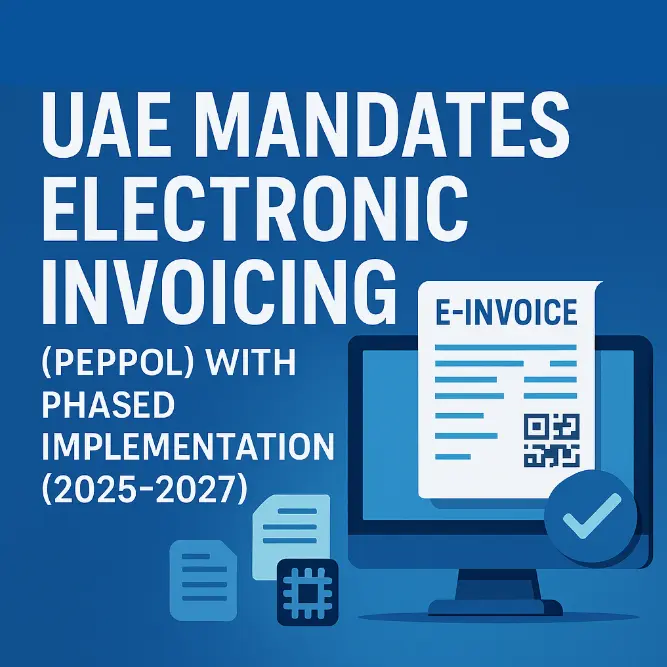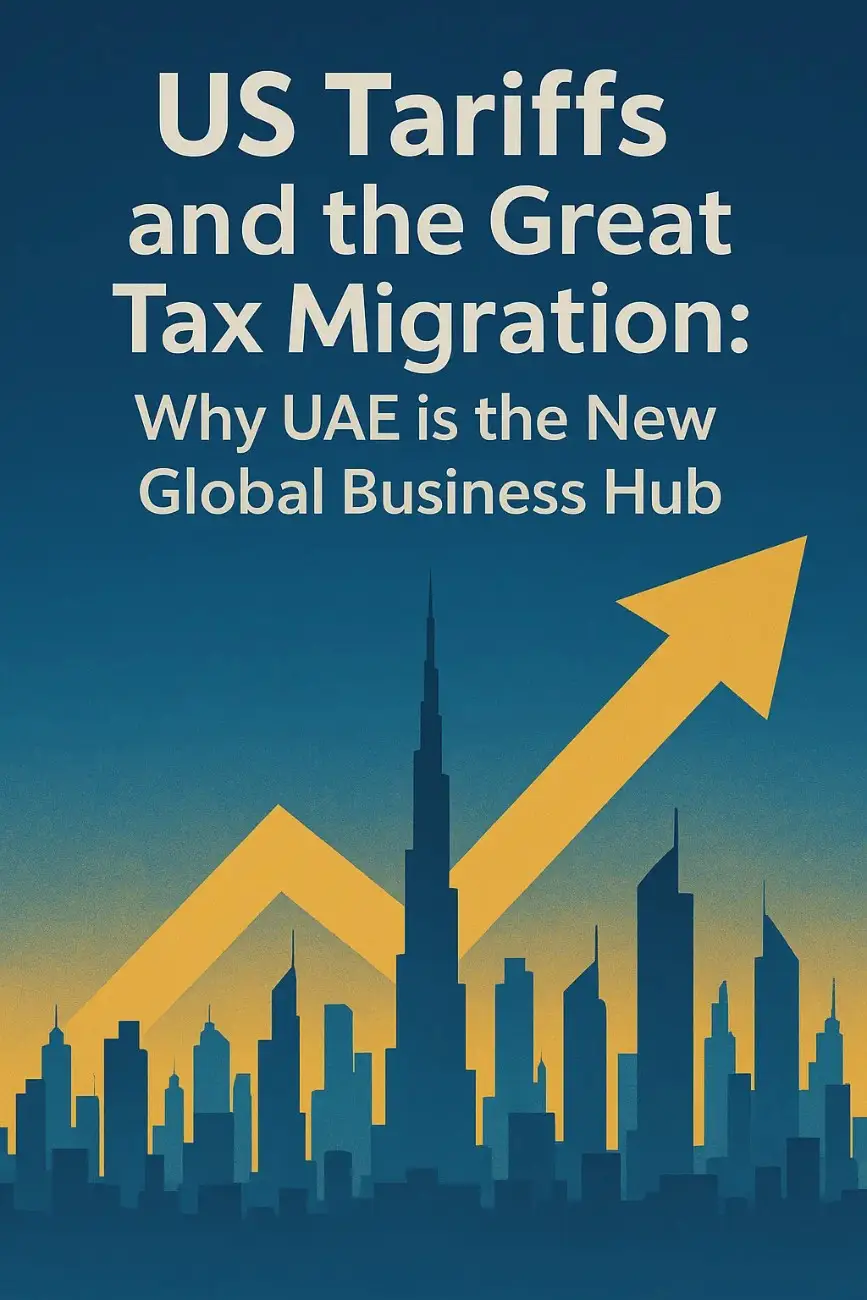Blog
- home
- >
- Blog
TRC Criteria for Tax Residency in the UAE
Understanding UAE Tax Residency: A Gateway to Global Tax Efficiency
The UAE has long been a magnet for entrepreneurs, investors, and multinational corporations. The UAE offers a tax residency framework that combines simplicity, competitiveness, and alignment with global standards. Whether you’re a growing startup or an established enterprise, understanding UAE tax residency could unlock significant financial advantages.
Who Qualifies as a UAE Tax Resident?
The UAE’s criteria are straightforward and designed to welcome individuals and businesses without bureaucratic hurdles. For individuals, there are three non-cumulative pathways:
The 183-Day Rule (physically present for 183+ days in a 12-month period)
The 90-Day Rule + UAE Ties (90+ days with a residence visa and a permanent home or job/business)
The “Center of Life” Test (primary residence and core personal/financial ties in the UAE). Take Sofia, a freelance designer splitting her year between Dubai and Barcelona. By leasing an apartment and billing clients through her UAE-registered LLC, she qualifies under the 90-day rule without full-time residency.
Businesses, meanwhile, qualify through two avenues: incorporation in the UAE (mainland, Free Zones, trusts) or effective management (foreign companies directing strategic decisions like board meetings from the UAE). Imagine a Berlin-based tech startup managed from Abu Dhabi’s Hub71—it would be deemed a UAE tax resident.
How to Secure Your Tax Residency Certificate (TRC)
The UAE Federal Tax Authority (FTA) issues a Tax Residency Certificate (TRC) to confirm an individual or business met UAE tax residency criteria during a specific past 12-month period. It is a retrospective validation, not a forward-looking authorization.
REQUIRED DOCUMENTS FOR TAX RESIDENCY CERTIFICATE (COMPANIES):
- Valid Company Trade License Copy
- Memorandum of Association (MOA)
- Manager Passport Copy
- Manager Residence Visa
- Manager Emirates ID
- Financial Audit Report (Should be relevant to the year you are applying to)
- 6-months Company bank statement
- Copy of lease agreement or Tenancy Contract under the name of the company
REQUIRED DOCUMENTS FOR TAX RESIDENCY CERTIFICATE (INDIVIDUALS):
- Passport Copy
- UAE Residence Visa Copy
- Emirates ID Copy
- A copy of (residential) lease agreement or Tenancy Contract Copy (Ejari or Title Deed)
- Latest Salary certificate or any Proof of income in the UAE.
- Latest 6-months bank statement
- Entry and exit report from Federal Authority of Identity and Citizenship or a local Government entity. (must be at least 183 days)
- Tax forms from the country in which the certificate is to be submitted.
Process:
Documents: Individuals submit passports, residence visas, and proof of UAE ties (rental/employment contracts). Businesses provide trade licenses, incorporation certificates, and management records (e.g., board resolutions).
Application: Filed via the FTA’s EmaraTax portal, specifying the assessed period. Fees range from AED 500 to 1,750, depending on applicant type.
Processing: Approved within 10 business days.
The TRC remains valid for 12 months for tax filings or treaty claims, but it certifies eligibility only for the reviewed historical period. This retroactive proof is essential to access the UAE’s 130+ double taxation treaties, which require evidence of prior residency to reduce withholding taxes or avoid dual taxation. By focusing on past compliance, the TRC aligns with global transparency standards, reinforcing the UAE’s OECD-aligned credibility.
Why Become a UAE Tax Resident?
The UAE’s 9% corporate tax rate, less than half the global average of 15%, is a headline perk, with profits under AED 375,000 tax-free and Free Zone entities enjoying 0% on offshore activities. Individuals keep 100% of their income, from salaries to capital gains, thanks to zero personal income tax. However, the UAE’s appeal goes deeper; adherence to OECD standards ensures substance over form (real economic activity), fair transfer pricing, and compliance with global anti-avoidance measures (BEPS). This, paired with a treaty network that slashes withholding tax, for instance, a French investor receiving UAE-sourced dividends taxed at 0% instead of 30%, and the value becomes undeniable.
Strategic Impact: Why This Matters for Global Players
For individuals, UAE residency is a wealth preservation tool, offering stability and zero tax on global earnings. Pair it with a second passport, and you gain visa-free mobility and backup security. Businesses, meanwhile, navigate a smart tax split; residents pay 9% on worldwide profits, while non-residents pay only on UAE-sourced income or profits tied to local operations (like a German manufacturer’s Dubai warehouse). Free Zones like DMCC or DIFC amplify this advantage, offering tax exemptions for offshore activities, provided they meet substance requirements.
Conclusion
The UAE, by adhering to OECD-level compliance with unmatched fiscal perks, offers simplicity for applicants, credibility for global partners, and savings for stakeholders. For individuals, it’s a zero-tax oasis to safeguard wealth. For businesses, the 9% corporate rate fuels growth while Free Zones trim overheads. And for both, the UAE’s treaty network turns cross-border complexity into opportunity. The criteria mentioned above are the criteria that must be met domestically; internationally some criteria might not comply, and the same rules and regulations might be different.
Need Guidance? Consult a Tax Expert
Navigating tax residency rules can be complex, especially when balancing domestic requirements with international obligations. If you have questions about your eligibility, documentation, or how to leverage UAE tax residency for global tax efficiency, DPTC offers tailored advisory services that allow you to simplify the process. Our team of experts specializes in UAE tax law, double taxation treaties, and compliance strategies for individuals and businesses, to ensure your tax residency strategy aligns with your financial goals visit: dptc.ae
Contact us today: bd@dptc.ae
📞 Call us: +971 0509434155
- Dhana Pillai




